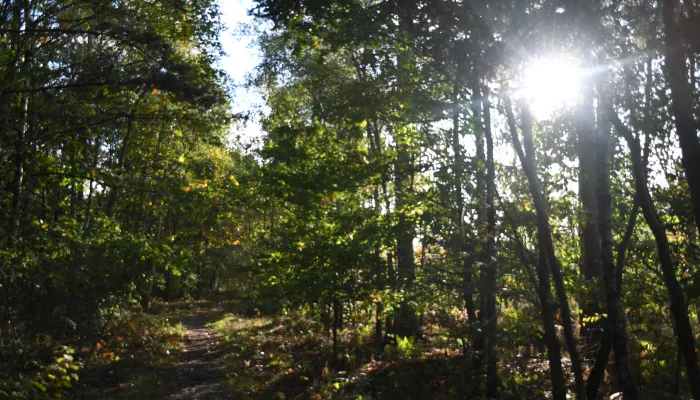About the reserve
Kent Wildlife Trust and Wildwood Trust have welcomed European Bison to Blean Woods. These powerful ecosystem engineers will help restore an abundance of wildlife to this area. Find out more on our project page or check out the FAQs by clicking the button below.
For up-to-date information about access and visiting the reserve, click below.
For example, coppicing is good for wildlife as it creates sunny glades perfect for sun-loving plants and animals. As the trees regenerate, they form a thicket which is perfect cover for a variety of small mammals such as dormice and birds like Nightingales. In time, the woodland naturally changes as the Oak trees mature – and these are perfect for hundreds of insect species as well as woodland birds and bats. The pine plantations will eventually be removed and a greater diversity of wildlife habitats will develop.
There are several way-marked, variable-length walks to follow. A short one-mile surfaced route will take you about 30 minutes to complete – or longer if you spend some time looking out for some of the interesting features on the way around.
Contact Us
If you need to get in touch regarding West Blean and Thornden Woods, for any reason, please contact:
Cristina Juan
Contact number: 01622 662012
Contact email: [email protected]
Environmental designation
- Ancient Woodland
- Site of Special Scientific Interest (SSSI)
Wilder Blean
Kent Wildlife Trust and Wildwood Trust have launched a flagship wilding project, ‘Wilder Blean’, funded by players of People’s Postcode Lottery.
The project will promote stronger habitats by restoring natural processes that are able to withstand the current environmental crisis and species decline, and in the long run, reverse it.
European bison are being used in this project because they are ecosystem engineers, meaning that they are able to change their environment through their natural behaviours.
Bison can change woodlands in a way that no other animal can. They eat bark and create dust baths which each have benefits for many plants and animals. These are functions that have been missing from our UK woodlands for thousands of years and bringing them back can help restore an abundance of wildlife.
Find out more about the Wilder Blean project here!

